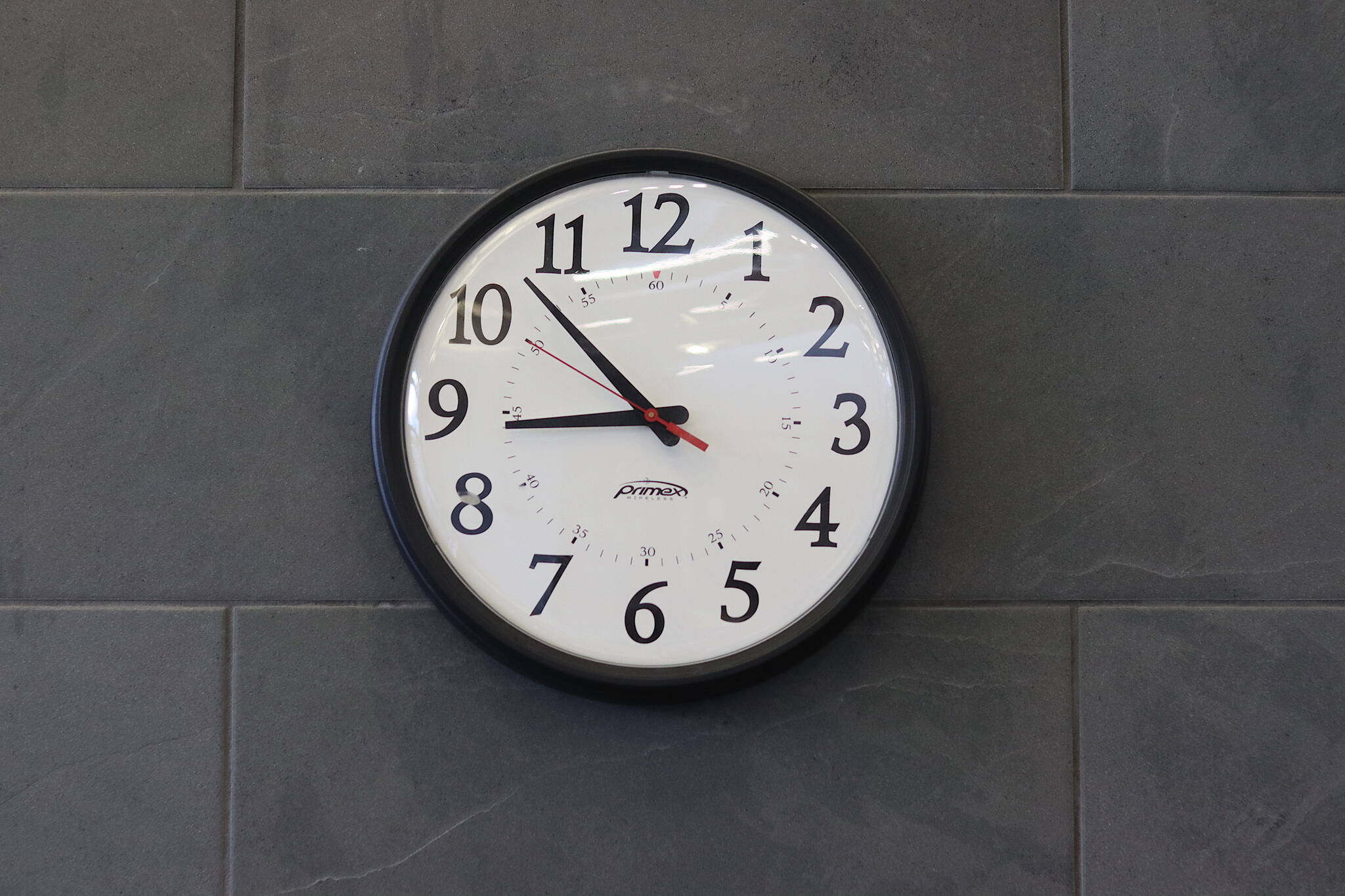A proposal to shorten school days by 30 minutes once a week to give teachers more preparation and training time was put on hold by the Juneau School District Board of Education on Tuesday night.
Some district officials said the delay may kill the proposal for the upcoming school year due to the lack of time to implement it before the first semester begins this fall.
The policy would have ended the school day for students 30 minutes earlier in Mondays, a change from an earlier proposal to start school 30 minutes late on Wednesdays. Ted Wilson, director of teaching and learning support for the district, said during the meeting the change was due to feedback from board members
Supporting board members said the change will help teachers of younger students meet the new requirements of the Alaska Reads Act, which takes effect in July and is intended to improve reading proficiency by third grade in the state. The act, signed into law last year, adds statewide requirements for teachers such as mandatory training and programs meant to improve literacy education for elementary students.
Among those opposing the change was board member Elizabeth Siddon, who said it will cause widespread disruptions for the benefit of a subset of teachers.
“I just feel like we should not be taking 30 minutes of instruction from all students to address the Alaska Reads Act,” she said. “If that is an unfunded mandate on our teachers then we as a board can fund that, and support our teachers in the training and support for what they’re gonna have to accomplish, but that our students still need the classroom time and our families need the consistency.”
Siddon said she hopes extra education funding approved by the Alaska Legislature for the fiscal year starting July 1 will remain in the budget when Gov. Mike Dunleavy signs it, which can then be used to provide support for teachers specifically needing to meet Alaska Reads Act requirements.
Board member Martin Stepetin Sr. said compensating teachers affected by the statewide act for the extra time they need is preferable to shortening the school day.
“By doing this it will be taking that time away from the students without adding more somewhere else, anywhere else,” he said.
Arguing in support was Emil Mackey, the board’s vice president, who said the benefits to teachers will go beyond just those affected by the Alaska Reads Act. He also said giving additional compensation to teachers to meet the act’s requirements isn’t a wise move.
“It would cost us, I think, a lot more money than I think the board realizes if we were to buy it, and we would not have control of the teachers to actually mandatorily make them attend,” he said. “And so it’s essential that we have the teachers actually attend. There is also, while I understand the argument about the Reads Act being the focus, all teachers need an opportunity for professional development. And there’s going to be benefits for professional development at all grade levels.”
A motion for district officials to meet with representatives of the Juneau Education Association, which represents local teachers, to discuss allowing teachers 30 minutes per week dedicated to professional development — and possibilities for compensating teachers for activities such as fulfilling Alaska Reads Act requirements — passed by a 4-3 vote.
Board members voting in favor were Brian Holst (who made the motion), Will Muldoon, Siddon and Stepetin. Voting against were Amber Frommherz, board president Deedie Sorensen and Mackey.
Mackey voiced the strongest objection to tabling the proposal until the board’s next meeting, arguing it will effectively kill the policy since the next board meeting is in August and transitional activities until then such as pending contract issues with district employees means “there’s no way to pass this and implement this the way the motion is framed in the time allotted.”
Muldoon, a board member and its clerk, said while Mackey’s concerns about timing have some merit, the board can act on the policy at its August meeting or subsequently reintroduce it later as a new proposal.
• Contact Mark Sabbatini at mark.sabbatini@juneauempire.com or (907) 957-2306.

